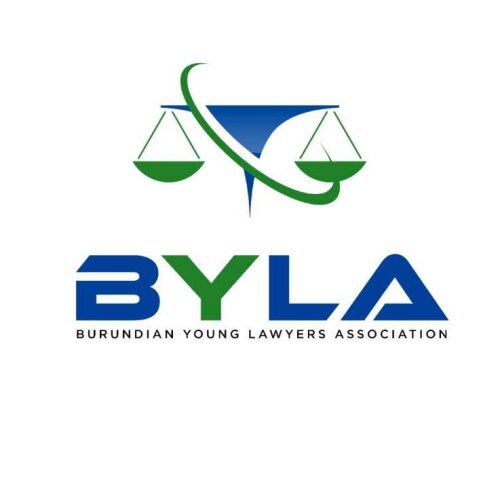Best Environmental Law & Compliance Lawyers in Burundi
Share your needs with us, get contacted by law firms.
Free. Takes 2 min.
Or refine your search by selecting a city:
List of the best lawyers in Burundi
About Environment Law in Burundi:
Burundi, a small landlocked country in East Africa, is known for its rich biodiversity and natural resources. In recent years, the government has made significant efforts to protect the environment through various laws and regulations. Environment law in Burundi aims to conserve natural resources, prevent pollution, and promote sustainable development.
Why You May Need a Lawyer:
There are various situations where you may require legal help in the field of environment in Burundi. These may include disputes over land use, pollution issues, environmental impact assessments, and compliance with environmental regulations. A lawyer can help you navigate the complex legal landscape and protect your rights.
Local Laws Overview:
Key aspects of local laws related to the environment in Burundi include the Environmental Code, which regulates environmental protection, conservation, and sustainable development. Other relevant laws address issues such as waste management, water resources, and biodiversity conservation. It is important to understand these laws to ensure compliance and avoid legal issues.
Frequently Asked Questions:
1. What are the main environmental challenges in Burundi?
Burundi faces challenges such as deforestation, soil erosion, water pollution, and waste management issues.
2. How can I report environmental violations in Burundi?
You can report environmental violations to the Ministry of Environment or local authorities for further action.
3. Are there regulations for waste disposal in Burundi?
Yes, Burundi has regulations on waste disposal to protect the environment and public health.
4. What are the penalties for violating environmental laws in Burundi?
Penalties for violating environmental laws in Burundi may include fines, imprisonment, or other punitive measures.
5. Do I need an environmental impact assessment for my project in Burundi?
Depending on the scale and nature of your project, you may need to conduct an environmental impact assessment to assess potential environmental impacts.
6. How can I protect my land from environmental degradation in Burundi?
You can protect your land from environmental degradation by following sustainable land management practices and complying with environmental regulations.
7. Are there incentives for environmental conservation in Burundi?
Yes, the government of Burundi offers incentives such as tax breaks and subsidies for businesses and individuals engaged in environmental conservation activities.
8. Can I challenge a decision by the environmental authorities in Burundi?
Yes, you can challenge a decision by the environmental authorities through legal means if you believe it is unjust or incorrect.
9. How can I ensure compliance with environmental laws in Burundi?
You can ensure compliance with environmental laws in Burundi by staying informed about relevant regulations, seeking legal advice, and implementing sustainable practices.
10. Are there NGOs working on environmental issues in Burundi?
Yes, there are several NGOs in Burundi dedicated to environmental conservation, sustainability, and advocacy for environmental protection.
Additional Resources:
For more information on environmental laws and regulations in Burundi, you can contact the Ministry of Environment or local environmental organizations. These resources can provide guidance and support for individuals seeking legal advice in the field of environment.
Next Steps:
If you need legal assistance in the field of environment in Burundi, consider consulting with a qualified lawyer who specializes in environmental law. They can provide personalized advice and representation to help you address your specific legal needs and protect your rights.
Lawzana helps you find the best lawyers and law firms in Burundi through a curated and pre-screened list of qualified legal professionals. Our platform offers rankings and detailed profiles of attorneys and law firms, allowing you to compare based on practice areas, including Environmental Law & Compliance, experience, and client feedback.
Each profile includes a description of the firm's areas of practice, client reviews, team members and partners, year of establishment, spoken languages, office locations, contact information, social media presence, and any published articles or resources. Most firms on our platform speak English and are experienced in both local and international legal matters.
Get a quote from top-rated law firms in Burundi — quickly, securely, and without unnecessary hassle.
Disclaimer:
The information provided on this page is for general informational purposes only and does not constitute legal advice. While we strive to ensure the accuracy and relevance of the content, legal information may change over time, and interpretations of the law can vary. You should always consult with a qualified legal professional for advice specific to your situation.
We disclaim all liability for actions taken or not taken based on the content of this page. If you believe any information is incorrect or outdated, please contact us, and we will review and update it where appropriate.
Browse environmental law & compliance law firms by city in Burundi
Refine your search by selecting a city.











